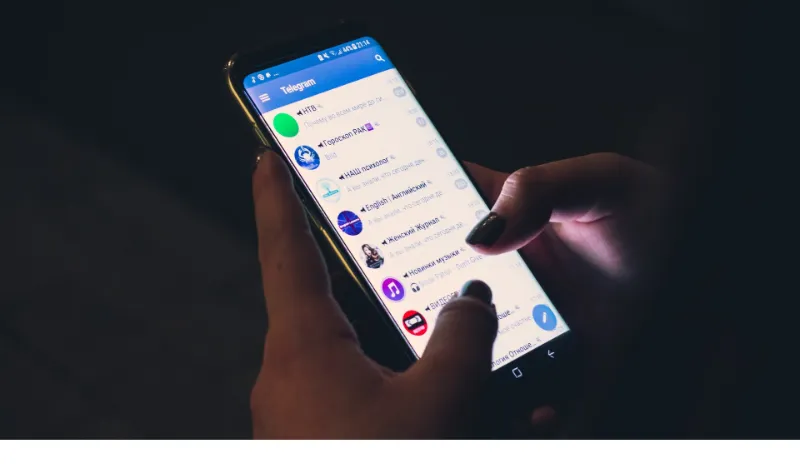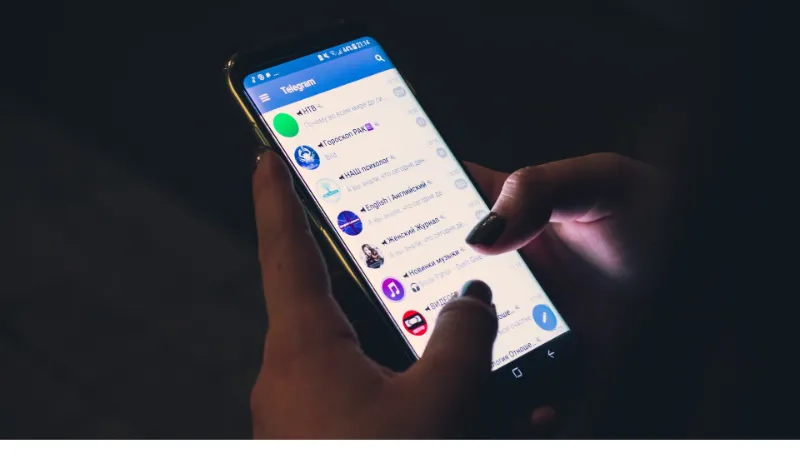WhatsApp, a name synonymous with modern communication, has evolved from a mere texting app to a versatile tool encompassing multimedia sharing, voice and video calling, and more.
With over two billion users, it’s more than a social platform – it’s a global phenomenon.
Particularly among students, WhatsApp has become a vital communication channel, facilitating casual chats and academic discussions.
What Is WhatsApp?
WhatsApp is a free messaging app that allows users to send texts, share images, videos, and documents, and conduct voice and video calls.
It’s a hub for personal and professional communication across various devices.
Overview of Its Popularity Among Students
With their never-ending thirst for collaboration and efficient communication, students have found a reliable friend in WhatsApp.
From coordinating group projects to sharing lecture notes, it’s a virtual classroom in the palm of their hands.
Reasons WhatsApp Is Essential for Students
Understanding the role of WhatsApp in the academic journey reveals a landscape where learning transcends the traditional boundaries.
Here’s why WhatsApp isn’t just a useful tool, but an essential one for students:
Reason 1. Enhanced Communication with Peers and Educators
Communication is the lifeblood of learning, and WhatsApp has turned it into an art. Gone are the days when students had to wait for classroom hours to clarify doubts or share insights.
With WhatsApp, learning has become a 24/7 experience.
Real-Time Interaction
WhatsApp allows students to communicate with peers and educators in real time. Got a question at midnight? Just drop a message in the group, and someone might be awake to help. It’s like having a classroom that never sleeps.
Collaborative Learning Environment
WhatsApp fosters a collaborative learning environment through study groups, class discussions, and one-on-one chats with professors.
It’s not just about asking and answering; it’s about engaging in meaningful dialogues that enhance understanding.
Accessibility to Educators
Teachers are no longer distant figures confined to office hours. WhatsApp bridges the gap, allowing students to reach out to educators informally. It’s a relationship of mentorship and guidance, accessible at the tap of a button.
Personalized Learning Experience
Students can tailor their learning experience by joining specific groups or engaging in private chats that align with their academic interests and needs. It’s personalized, flexible, and student-centered.
In a world where timely communication is key, WhatsApp is a beacon of accessibility and collaboration.
It transforms the way students and educators interact, breaking down barriers and making learning a continuous, engaging journey.
Reason 2. Access to Educational Resources and Study Groups
Imagine having an entire library, a classroom, and a community of like-minded learners in your pocket. That’s what WhatsApp brings to the table. Here’s how this access revolutionizes education:
Study Groups at Your Fingertips
Want to discuss the latest lecture? Need help with a tough problem? Create or join study groups on WhatsApp. Collaborate with peers, share insights, and create a virtual classroom where learning thrives.
Seamless Sharing of Resources
Books, notes, videos – all your educational resources can be shared effortlessly on WhatsApp. It’s like having a dynamic library that grows with every shared link or document.
Learning Beyond Boundaries
With WhatsApp, geographical location doesn’t limit access to knowledge. Whether you’re across the campus or across the globe, you’re connected to a network of learners and educators.
Integration with Other Platforms
WhatsApp can be used with other educational platforms and tools, creating a seamless flow of information.
For instance, the differences between WhatsApp and WhatsApp Plus could lead you to choose one over the other based on specific educational needs. You can explore more about these differences here.
24/7 Availability
Need to catch up on a missed class? Want to revisit a lecture? With resources shared on WhatsApp, you can access them anytime. It’s a 24/7 learning hub tailored to your needs.
Reason 3. Flexibility in Learning Through Multimedia Sharing
Education is no longer confined to textbooks and classrooms. In today’s digital age, learning is multifaceted and multimedia-driven.
WhatsApp has embraced this trend, providing students with a versatile platform that caters to various learning styles. Here’s how:
Videos and Visual Aids
Visual learners, rejoice! With WhatsApp, teachers can share videos, charts, and images that make complex concepts come alive. It’s learning through visualization, and it’s incredibly effective.
Voice Notes and Audio Learning
Prefer to listen rather than read? WhatsApp’s voice note feature enables auditory learning. You can listen on the go, whether it’s a recorded lecture or an explanation.
Interactive Learning Experience
WhatsApp makes learning engaging and interactive through quizzes, polls, and interactive discussions. It’s not just about absorbing information; it’s about participating in the learning process.
Adaptable to Different Learning Styles
Every student is unique, and so is their learning style. WhatsApp’s multimedia capabilities cater to visual, auditory, and kinesthetic learners, providing an adaptable learning environment.
Accessibility Across Devices
Whether you’re on a computer or a mobile device, you can access multimedia content on WhatsApp. Learn more about the differences between WhatsApp Web and Desktop to choose the best platform for your needs here.
Tailored Content for Individual Needs
Teachers can share specific content with individual students based on their learning needs. Struggling with a topic? Receive additional videos or notes tailored just for you.
Reason 4. Security and Privacy in Educational Communication
When it comes to educational communication, security and privacy are paramount. Nobody wants their personal or academic information floating around unguarded.
WhatsApp steps up to the plate, offering a secure platform where students and teachers can interact with peace of mind. Here’s how:
End-to-End Encryption
With WhatsApp, your messages, calls, and shared files are secured with end-to-end encryption. This means that only you and the person you’re communicating with can read what’s sent. It’s like having a private conversation in a room where no one else can eavesdrop.
Controlled Group Access
Teachers and students can control who joins their study groups. No more unwanted intruders. You decide who gets access, ensuring that your educational space remains exclusive and secure.
Two-Step Verification
Extra security layers like two-step verification add additional protection to your account. It’s not just about keeping intruders out; it’s about giving you control over your account’s safety.
Privacy Settings
You can tailor your privacy settings according to your comfort level. Share what you want with whom you want. It’s about choice, trust, and control.
Compliance with School Policies
Is WhatsApp safe for schools? By adhering to privacy regulations and using features like encryption, WhatsApp aligns with educational institution policies, making it a reliable tool for secure communication.
Reason 5. Cost-Effective Learning and Communication
Education can often come with a hefty price tag, but communication and collaboration shouldn’t be part of the financial burden.
WhatsApp provides an affordable solution that allows students and educators to connect without breaking the bank. Here’s why it’s a win for cost-effective learning:
Free Text Messaging and Calls
Say goodbye to expensive SMS charges or calling rates. With an internet connection, you can send unlimited messages, make voice and video calls for free. It’s communication without the cost.
Low Data Consumption
WhatsApp is designed to use minimal data, allowing even those with limited data plans to participate actively in educational groups and discussions. It’s inclusion without the high internet bill.
Accessible on Various Devices
Whether it’s a smartphone, tablet, or computer, WhatsApp is available across various devices. No need for high-end tech gadgets; a basic smartphone with an internet connection suffices.
Share Resources Without Additional Costs
Sharing books, notes, or videos? No extra charges apply. Whether you’re sharing a research paper or a tutorial video, it’s all part of the package.
International Communication Made Affordable
Studying abroad or collaborating with an international peer? WhatsApp eliminates the international calling fees, connecting the global student community seamlessly.
Integration with Affordable Educational Tools
WhatsApp can be integrated with various free or low-cost educational tools and platforms, creating a budget-friendly learning environment.
Understanding the Differences for Better Choices
Choosing between different WhatsApp versions could also impact costs. Understanding the differences between WhatsApp and GBWhatsApp can guide you to a choice that fits your needs. Learn more about these differences here.
Reason 6. Collaboration and Teamwork Made Simple
The adage “two heads are better than one” is never truer than in the academic world. Collaboration fosters creativity, critical thinking, and problem-solving.
WhatsApp makes teamwork not only possible but effortless. Here’s how it’s revolutionizing collaboration among students:
Group Chats for Team Projects
Creating a group for a team project has never been easier. Share ideas, updates, and files all in one place. It’s teamwork without the hassle.
Real-Time Communication
Real-time messaging enables instant collaboration, whether it’s a quick question or a brainstorming session. It’s like having your team in your pocket.
Task Delegation and Tracking
Assign tasks, set deadlines, and track progress all within a WhatsApp group. It’s project management made simple.
Document Sharing and Review
Need to review a teammate’s work or share your own? WhatsApp allows easy sharing and commenting on documents. It’s collaboration on the go.
Inclusive Participation
Everyone has a voice in a WhatsApp group. From the shy student to the outspoken leader, all team members can actively participate, fostering a democratic and inclusive environment.
Integration with Other Tools
WhatsApp can be integrated with other collaboration tools, enhancing its functionality. Learn about the differences between WhatsApp group and broadcast to make the most out of your collaborative efforts here.
Maintaining Professional Boundaries
Different versions of WhatsApp, like WhatsApp Business, can help maintain professional boundaries in academic collaboration.
More about the differences between regular WhatsApp and business variant can be found here.
Reason 7. Enhancing Student Engagement and Participation
Engaging students and encouraging participation can be one of the most challenging aspects of education. However, WhatsApp has risen to the challenge, providing features that enhance student engagement and foster active participation in the learning process.
Personalized Learning Experience
Teachers can send personalized messages or feedback to students, creating a connection that makes learning more meaningful and engaging.
Interactive Polls and Quizzes
By using polls and quizzes within WhatsApp groups, educators can turn lessons into interactive experiences. It’s education with a touch of excitement.
Ease of Asking Questions
Students can comfortably ask questions privately or in group chats, encouraging even the most hesitant learners to engage.
Multimedia Learning Resources
WhatsApp allows sharing videos, images, and voice notes, catering to different learning styles. It’s not just reading; it’s seeing, hearing, and understanding.
Encouraging Peer Support
Creating a supportive community where students help each other enhances engagement. WhatsApp fosters this peer-to-peer interaction, building a community of learners.
Using WhatsApp for Online Learning
Can WhatsApp be used for online learning? Absolutely! WhatsApp supports a full-fledged online learning environment, from virtual classes to study materials. Learn more about the pros and cons of WhatsApp Web here.
Frequently Asked Questions (FAQ)
In this tech-savvy era, questions surrounding apps like WhatsApp are abundant, especially regarding education.
Below, I’ve addressed some of the common queries related to how WhatsApp is beneficial for students.
Q: What are the benefits of WhatsApp?
A: From real-time communication to collaboration, free messaging, accessibility, security, and more, WhatsApp offers multifaceted benefits that enhance learning and make it engaging.
Q: Can WhatsApp be used for online learning?
A: Absolutely! With features like group chats, multimedia sharing, and real-time interaction, WhatsApp provides a robust platform for online learning. Explore more about WhatsApp Web vs. Desktop here.
Q: Is WhatsApp safe for schools?
A: With end-to-end encryption and privacy settings, WhatsApp ensures data security. Schools can also implement guidelines to maintain professional boundaries, ensuring safe usage.
Q: How can I teach through WhatsApp?
A: From creating class groups to sharing resources, conducting quizzes, and providing personalized feedback, teachers can leverage WhatsApp for a seamless teaching experience.
Q: How does WhatsApp compare to other communication platforms?
A: WhatsApp offers unique advantages like cost-effectiveness, simplicity, accessibility, and security, making it stand out among communication platforms. For comparison, see WhatsApp vs. Discord here.
Conclusion
Integrating WhatsApp into the academic sphere is more than a convenience; it’s a transformation.
By bridging the gap between technology and education, WhatsApp has become an essential part of learning in the modern world.
From enhancing communication between teachers and students to fostering collaboration, offering secure and private platforms, and creating interactive and engaging learning experiences, the usefulness of WhatsApp for students is multifaceted and profound.
While other platforms exist, the simplicity, accessibility, and versatility of WhatsApp set it apart. It’s not just another app; it’s a tool that complements the educational process, adapting to various learning styles and needs.
Whether you are a student seeking convenient ways to interact with classmates, a teacher aiming to engage learners, or an institution striving to enhance the educational experience, WhatsApp offers a dynamic solution.
By embracing this platform, we open doors to new possibilities in education, connecting, collaborating, and creating like never before.









